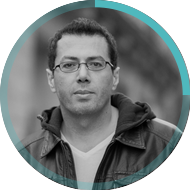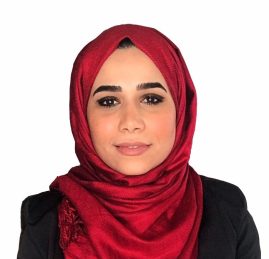It was a scandal of the highest caliber. On 23 November the senate of the University of Cape Town (UCT) in South Africa was practically bullied into reversing an earlier decision calling for the academic boycott of Israel. While the story may seem relevant in South Africa’s political and academic contexts in reality it exemplifies the nature of a brewing war between supporters of Palestinian rights and Israeli interests worldwide.
In fact the UCT scandal began much earlier.
Calls for South African universities to join the academic boycott of apartheid Israel were first answered by the University of Johannesburg on 29 September 2010. Decisive action taken by the faculty senate at the university sent a clear message to Israel’s academic institutions that South African academics would no longer accommodate Israeli crimes including the crime of apartheid in the name of scientific cooperation or “academic freedom”.
The severing of ties between the University of Johannesburg and Israel’s Ben Gurion University sounded the alarm among Israel’s supporters in South Africa under the leadership of the South African Jewish Board of Deputies (SAJBD) which fanned out throughout the country warning of the supposed rise of anti-Semitism.
However the successful campaign in Johannesburg inspired other student groups across the country to carry on with their mission of holding the Israeli state accountable for its racism apartheid and military occupation. In August 2012 the Student Representative Council at the University of Witwatersrand adopted a resolution that called for a full academic and cultural boycott of Israel.
Support for Palestine continued. In response to the deadly Israeli war on Gaza in the summer of 2014 more than 300 members of Rhodes University in Grahamstown including the university’s vice-chancellor Dr. Sizwe Maisel condemned Israeli violence targeting the besieged Strip.
In August 2014 the University of Cape Town’s Student Representative Council (UCT SRC) began its campaign aimed at cutting ties between the UCT and Israel in response to a memorandum introduced by the Palestine Solidarity Forum (PSF). The students had courageously and “unconditionally” declared Israel an apartheid state calling for the boycott of Israeli products and demanding the expulsion of Israel’s ambassador to the country.
The UCT students have so much to be proud of as their efforts combined with a massive grassroots movement throughout South Africa did in fact push the government to rethink its ties with Israel. In May 2018 Pretoria recalled its ambassador to Israel to protest the Israeli army killings of unarmed Palestinian protesters in Gaza.
The UCT student efforts began paying dividends on 15 March 2019 when the university senate passed a resolution that called on the university not to engage with any Israeli academic institutions whether those operating within the occupied Palestinian territories or any others that contribute to Israel’s gross human rights violations in Palestine.
Considering the importance of the UCT as Africa’s top academic institution and the democratic nature of its senate which includes 363 representatives the pro-Palestine resolution was too much for Israel’s supporters to bear.
On 19 March the SAJBD and the South African Zionist Federation (SAZF) called on the UCT’S council to reject the resolution. At the time an influential SAJBD member informed the right-wing Israeli newspaper the Jerusalem Post that the senate had “shamefully caved in to pressure from radical anti-Israel lobby groups.”
Wary of outside pressures yet careful not to lose all credibility within the senate the 30-members of the UCT’s council including representatives who have been “elected by donors” attempted to exert pressure at the senate without rejecting the resolution outright. On 30 March the council sent the resolution back to the senate to “reconsider”.
Since then a battle of wills ensued involving on the one hand student groups and their supporters in the senate and on the other the council and the many pressure groups leading among them SAJBD and SAZF.
Weighing in on the matter 65 distinguished Jewish scholars signed a letter addressed to the UCT “to preserve [its previous] resolution and safeguard the university’s academic freedom and autonomy.”
The March resolution the letter argued “establishes UCT as an adherent to international law and affirms the university as a partner in the struggle for human rights in Israel/Palestine.”
The following passage highlights the nature of the ugly opposition that the resolution had inspired culminating in the unfortunate decision of the senate in November to strike down its own previous commitment:
“Over the past six months opponents of this resolution have used backdoor fear-mongering about the withdrawal of private funding to cripple the institution thereby undermining the academic freedom of the UCT senate members.”
Sadly even such a candid and passionate call failed to dissuade the council from pressuring the senate leading to the 23 November vote and the reversal of the March resolution.
Israel’s friends in South Africa are now gloating welcoming the badly needed respite from Israel’s political misfortunes in the country.
While indeed the UCT’s senate decision is a regrettable setback it is most likely to invigorate pro-Palestine campaigners in South Africa so that they may take the academic boycott movement to every academic institution in the country that engages with and validates human rights violators in Israel Palestine or anywhere else in the world.
I visited South Africa for the third time in September. My speaking tour in that beautiful and ever-inspiring country has taken me to several universities government and civil society offices and other intellectual and community forums. Certainly in all of my travels I have never experienced such harmony between politicians academics and civil society activists regarding the rights of the Palestinian people and the insistence on holding Israeli criminals to account.
The boycott of Israel as championed by the Boycott Divestment and Sanctions (BDS) movement is hardly on the decline as the recent decision by the US Brown University Committee on Corporate Responsibility in Investment Policies (ACCRIP) to divest from Israeli companies amply demonstrates.
However it behooves the UCT to rethink its priorities and to choose between its commitment to those “elected by donors” and the democratic ideals as championed by post-Apartheid South Africa.
– Ramzy Baroud is a journalist author and editor of Palestine Chronicle. He has authored a number of books on the Palestinian struggle including ‘The Last Earth: A Palestinian Story’. Baroud has a Ph.D. in Palestine Studies from the University of Exeter and is a Non-Resident Scholar at Orfalea Center for Global and International Studies University of California Santa Barbara.











